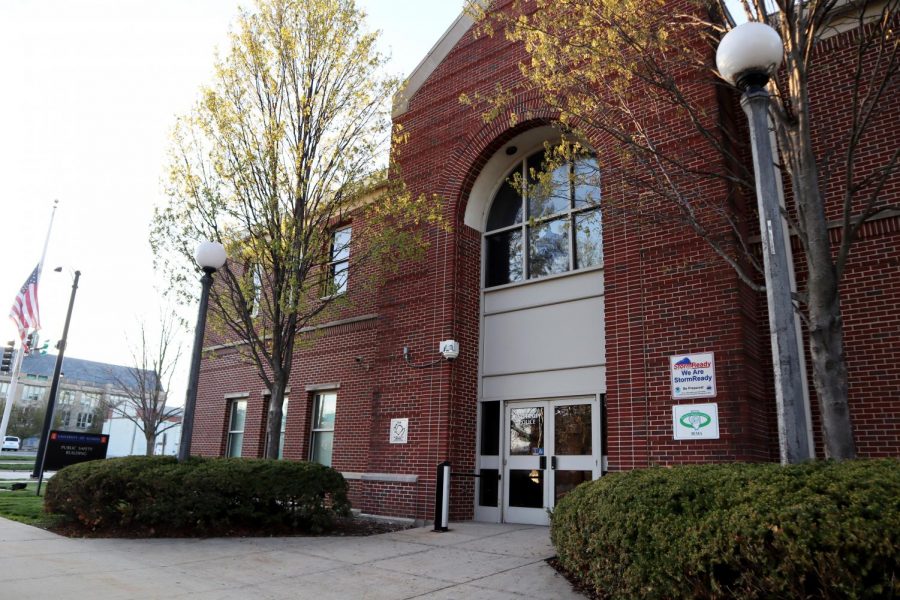UIPD funding referendum requires University approval before implementation
The Champaign Police Department sits quietly at 82 E. University Ave. in Champaign, Illinois. The University has yet to complete a review process with their Board of Trustees in order to reallocate the University of Illinois Police Department budget.
April 22, 2021
Almost a month after 78% of voting students chose to reallocate University of Illinois Police Department funding, the process of implementing the referendum is only just beginning.
The referendum, which now takes the form of an administrative recommendation, will have to pass through a review process by the Board of Trustees and the University. The review will be aided by the Public Safety, Policing and the Justice System working group in order to approve the reallocation and to determine how the 25% of the total UIPD budget — roughly two million dollars — will be spent.
Central to the consideration of the referendum is how the reduced funding will impact UIPD operations. According to the UIPD budget, over 84% of the UIPD’s current funding is directed toward personnel costs. The rest of the budget is allocated on a yearly basis by the University, based on recommendations from the UIPD.
“We kind of look at what are the programming needs to make sure that we have as safe of a campus as possible,” said Patrick Wade, senior director of Strategic Communications for the UIPD. “Training is always a big one, especially with the new crime reform bill that’s going into effect this summer.”
The proposed budgetary increases for next year also include the hiring of another UIPD social worker. On the other hand, the current discussion about how the reallocation of funding will be handled, includes the creation of a similar service outside of the framework of a police department. The more general budgetary impacts of this reallocation share this tradeoff between police action and community services.
“In that scenario, we’d be looking at a clear reduction in services (including) our patrol units, community outreach, crime prevention education and sexual violence resources,” Wade said when asked about the budgetary cutbacks which could occur if the referendum is accepted.
The process of implementing these budgetary changes will likely take a long time, if the Board of Trustees and the University decide to implement them at all.
“These referendums through (Illinois Student Government) that the students vote on, we definitely appreciate hearing that input and that informs the decisions that our campus administrators and our campus leaders make about service allocation on campus,” Wade said.
The Public Safety, Policing and Justice System working group declined to comment.







